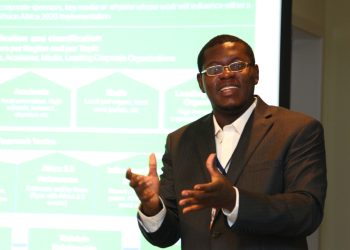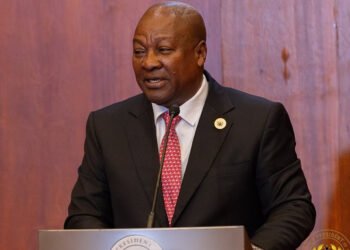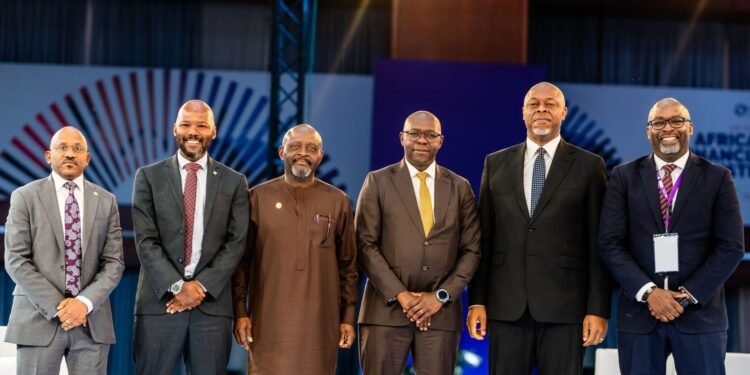Bright Simons, Vice President of IMANI Africa, has raised serious concerns about Ghana’s climate change commitments, pointing to contradictions between government pledges under international agreements and the reality on the ground.
His remarks spotlighted the continued reliance on firewood by some of the country’s leading secondary schools despite official commitments to promote clean and sustainable energy alternatives.
Speaking on Ghana’s standing in global environmental agreements, Simons observed that the country has long displayed enthusiasm for joining international accords and producing reports to demonstrate compliance and is often supported by international partners such as the World Bank.
“Ghana likes international agreements. The country signs many of them readily, and enthusiastically generates the paperwork to comply with the standards and protocols in these agreements. The World Bank and other international collaborators top up with many reports of their own”
Bright Simons, Vice President of IMANI Africa
Ghana is a signatory to the Paris Agreement, which aims to drive the global transition toward a greener, low-carbon future. As part of this commitment, the country has submitted its “nationally determined contributions” detailing the actions it plans to undertake in order to reduce carbon emissions and mitigate climate change.

According to Simons, Ghana has pledged to prioritise cleaner technologies as part of these commitments. He explained that at the top of Ghana’s list is the switch from traditional biomass, such as firewood, to clean cookstoves powered by fuels like ethanol.
He further highlighted that interim policies emphasise the promotion of liquefied petroleum gas (LPG) as a cleaner alternative to firewood until more advanced technologies are widely accessible.
“The Paris Agreement’s Article 6 ‘inherited’ the provisions of the Clean Development Mechanism of the earlier Kyoto Protocol. Ghana has identified top technologies for it to switch away from dirty fuels to clean energy. It reports regularly to the UN about its progress”
Bright Simons, Vice President of IMANI Africa
World Bank Support and Policy Alignment
The World Bank has publicly expressed support for Ghana’s commitment to reducing reliance on firewood.
“The World Bank tells us that it seriously loves Ghana’s love for fighting climate change using clean cookstoves and has made $250 million available to help,” Simons stated, revealing that the institution has pledged significant financial resources to accelerate progress in this area.

A central focus of these commitments has been on schools, particularly at the secondary level, where policies have identified the transition from firewood to LPG as an “urgent priority.” By targeting educational institutions, policymakers hoped to make the transition widespread and sustainable.
However, Simons cautioned that the picture on the ground diverges starkly from the reports.
He revealed that surprisingly, one of the most elite secondary schools right in the capital of Accra has not only continued to use firewood but has actually expanded its reliance on open-fire stoves. “The firewood does not come from sustainable forest woodlots and there are no clean stoves in sight,” Simons said.
According to him, the school’s decision to revert to firewood was motivated by economic factors. LPG had become too costly, and declining government subsidies under the Free Secondary Education policy have reportedly pushed administrators to seek cheaper alternatives.
Policy Gaps and Broader Implications
Simons argued that the situation is symptomatic of broader systemic weaknesses in policy execution.
He categorised these challenges under what he described as “katanomics,” “fossilisation,” and “climate realpolitik.” Each concept points to shortcomings such as weak accountability, ineffective donor-backed programs, and the triumph of economic realities over climate ideals.

He further called for deeper scrutiny into how policies are implemented, stressing that glossy reports submitted to international bodies fail to reveal the real challenges. Instead, he advocated for what he termed “forensic ethnography,” urging civil society actors to directly investigate how policies unfold on the ground.
“Paper reports don’t pierce through. Let’s have independent civil society actors go to the ground and LOOK,” Simons concluded – his revelations underscoring a growing tension between Ghana’s international climate commitments and domestic policy realities.
As global stakeholders continue to applaud Ghana’s pledges, evidence from its schools suggests that the country’s climate ambitions remain vulnerable to the everyday economics of implementation.
READ ALSO: Timely Coupon Settlements Key to Ghana’s Return to Global Capital Markets- Prof. Bokpin






















